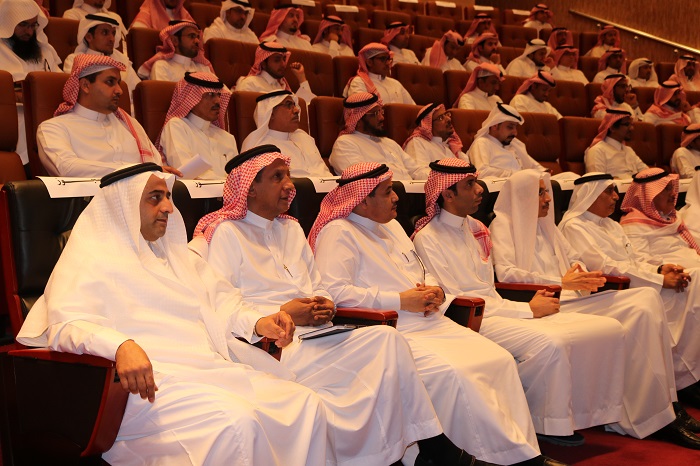
The Ministry of Finance held a symposium on Wednesday, 08/11/1437 AH, entitled " Economic diversification ", a number of officials, specialists, interested government agencies, universities and private sector have attended this symposium at the headquarter of the Ministry in Riyadh.
The symposium has started by a working paper presented by two experts, Dr. Reda Cherif and Dr. Fuad Hasanov from the IMF, in which they putting into perspective the implications of the decline in oil prices on the revenues of producing countries, which has made diversification such a pressing policy issue.
Cherif and Hasanov indicated that, to achieve diversification, oil exporters must change the prevailing economic model. Despite the complex choices involved, it is paramount for oil-dependent economies to become innovative economies. They will have to experiment and learn from the experiences of other countries on their path to diversification. such as Brazil, Korea, Malaysia, and Singapore.
They have made major strides in diversifying their economies, and their experiences carry important lessons for GCC countries today.
These countries’ experiences reveal that incentives for firms and workers need to be realigned to develop technologically sophisticated export-oriented industries. Standard growth policy prescriptions may not be sufficient to achieve true diversification. In addition to addressing government failures, policymakers must address market failures by changing incentives for firms and workers to move toward more dynamic sectors. Policymakers should focus on developing dynamic export markets. Diversification has to start somewhere and can begin by focusing on a more limited set of industries. Facilitating entrepreneurship is essential while education and social development are paramount. The choice to diversify via the service sector versus the manufacturing sector depends on the potential productivity gains. The frontier between services and manufacturing is fading, and there are more productivity gains to be had with service sectors that are more strongly linked to the manufacturing sector
For his part, Mr. Ali Al Hassosah, the economic advisor in the Ministry of Finance extended his thanks and appreciation to all participates. He also expressed gratitude to the IMF experts for their valuable paperwork as it is contained important economic issues, ideas and suggestions inducing to achieve economic diversification.
Mr. Al Hassosah pointed out that the symposium aims to benefit from the exchange of views and valuable experience of participants; to enrich and to deepening the Comprehensive long-term operational mechanisms of development strategy; to provide information and data base relevant to economic diversification; to recognize the obstacles of achieving economic diversification and finding out the solutions.

